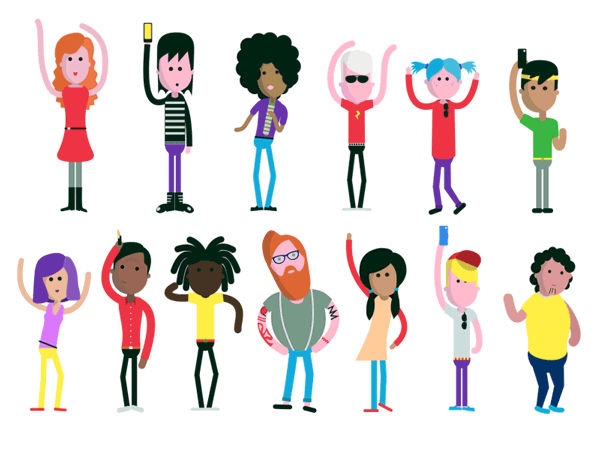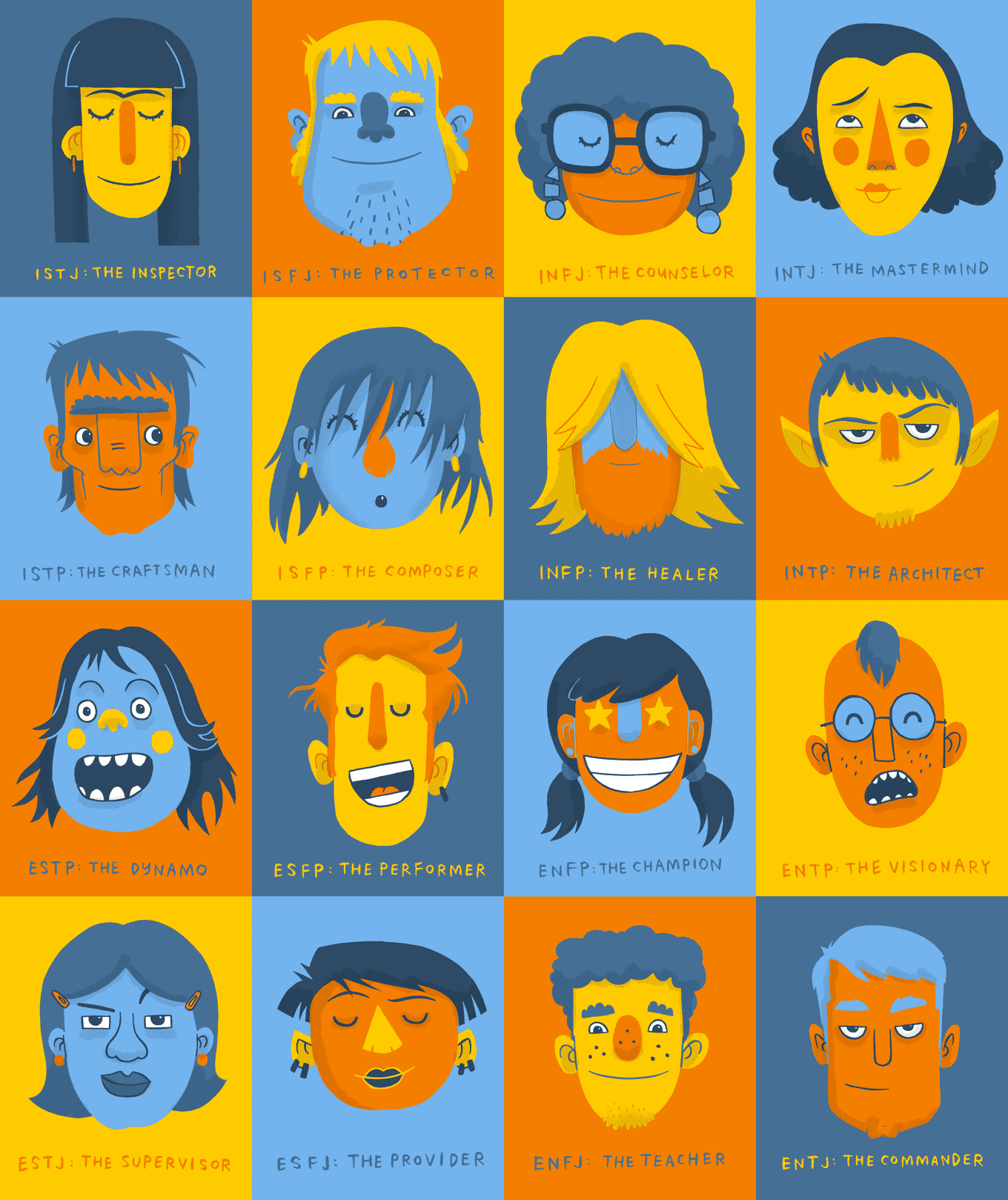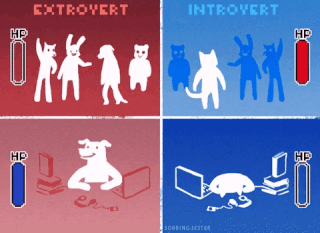Mistyping Personality
by Kenneth Lyen
by Kenneth Lyen



Introduction
I hate being typecast.

Woody Allen caught my sentiment best in a quote from his film Annie Hall: "I love being reduced to a cultural stereotype," which of course means the exact opposite.

Most of us enjoy playing games and sorting our friends into different personality pigeonholes. She's an ogre, he's a coward, she's warmhearted, and so on. It is even more enjoyable when the person being typecast is someone like Donald Trump:
Do you think that he has a "Narcissistic personality disorder, a mental condition in which people have an inflated sense of their own importance, a deep need for excessive attention and admiration, troubled relationships, and a lack of empathy for others"?


Personality Tests
All would be well were it not for a fact that so many people take personality typing too dead seriously, and use it to determine future careers, marriages, and even potential travel destinations. Indeed some 15 million people are tested on the Minnesota Multiphasic Personality Inventory (MMPI) each year in the USA alone. Furthermore, 89 companies in the Fortune 100 use the Myers-Briggs Type Indicator (MBTI) to ascertain which job applicants would be most suitable for employment.

With such profligate use (or misuse) of personality assessments, it is not surprising that these tests are coming under intense fire. Abraham Lincoln (1809-1865) once said, "You can fool some of the people all of the time, and all of the people some of the time, but you cannot fool all of the people all of the time."
Are personality tests the genuine article with some basic integrity, albeit flawed? Or are they one grand hoax fooling millions of unsuspecting suckers worldwide, worse than any corporate scam ever perpetrated?

Criticisms of Personality Tests
Let us look at the criticisms leveled against these tests. One such attack is made by Walter Mischel (1930-2018), whose photo is above. He found that the results of personality tests, such as the MBTI, are not consistent. Up to 47% of testers end up with a different personality type when retested. He argued that if there is reasonable stability in personality traits, then the wild fluctuations in typing must be due to a flawed test.
Defenders of Personality Tests
Defenders of personality tests would point to all biological tests, such as blood pressure or tests of attention deficit hyperactivity. There will be fluctuations in the results depending on the time of day, or day of the week the test is conducted. So yes, the MBTI test might claim, for example, that people who are more emotional, like aggression, are indeed naturally more prone to fluctuations, depending upon environmental circumstances. There is nothing wrong with the test. Indeed it is great that it is sensitive enough to reflect a person's changes in personality. After all, we behave differently when we are at school, in our office, in a party, with our parents, or at home, don't we? The problem is not in the test, but that people get bored with repeated tests, that they become rather capricious with such tests, and some may even sabotage them. Conscious and unconscious factors which can affect the expression of different aspects of personality, especially during testing, are not taken into account with these studies.


Another Attack on Personality Tests
The second attack leveled against personality testing is that personality is like a huge metaphorical elephant. We do not fully understand the nature of the beast. And the current state of the art in testing is still in its infancy. Thus each test conducted is rather like a blind person feeling a different part of this proboscidean. People are too readily labeled as "individualist" or "challenger" or ESFJ (extraversion, sensing, feeling, judgment) or INTP (introversion, intuition, thinking, perceiving), or something else.
In defence, I would agree that we do not know what these labels really mean. Nor can we, or should we use the labels to predict future behavior. Until we gain a much better understanding of personality, it would be too presumptuous to use these tests to determine someone's entire future livelihood or marriage. However, i would not wish to throw out the personality test baby with the entire testing bath water. Let us continue to refine the tests.


The Barnum Effect
A further problem is referred to as The Barnum Effect. The term is used in psychology to describe the tendency for people to be rather gullible, and accept vague descriptions of themselves as accurate. This is best seen in astrology, graphology (handwriting analysis), palm reading, psychometric tests, as well as personality profiles. It is named after PT (Greatest Showman) Barnum, a circus showman in the 19th century who had the talent of making others believe whatever he said, whether it was true or not. The problem with personality profiles is that people are placed into broad categories that overlap considerably. Most of us will fit into several of these pigeon holes. As there are no independent means of assessing the veracity of personality tests, reliance upon one's own assessment is fraught with hazards of mistyping, due in part to an inherent self-deception.

The Four Humors of Hippocrates
Hippocrates (460-377 BC) suggested that human personality consisted of the blending of four humors or temperaments, namely sanguine (courage), phlegmatic (unemotional), choleric (bad-tempered), and melancholic (despondent).

Frank Baum's Wizard of Oz
The 4 humors roughly corresponds with the four characters in Frank Baum's (1856-1919) Wizard of Oz: the lion who lacked courage, the tinman who was unemotional, Dorothy who was upset because she had lost her way home, and the scarecrow who was sad that he thought he was witless and worthless.


The Five-Factor Model of Personality
Modern day theory has not moved very much further. Instead of four factors, today we talk about the Five-Factor Model, which comprises the following personality traits: openness, conscientiousness, extraversion, agreeableness, and neuroticism. Well, we are slowly pushing forwards, but more does not necessarily mean better. For example, the Enneagram Personality Test has nine factors, but many of us doubt its reliability.
Personality testing will always remain popular because we are thirsting to know the answer to such questions as "Who am I?" "What am I good at doing?" "With whom will I get along best?"

Do We Have Multiple Personalities?
I hate being typecast because I do not consider myself a one-dimensional person. Perhaps it's true that I have multiple personalities. I mold my personality to match the person I'm with at that moment of time. As for career advice, I certainly do not wish to be told that the best job for me is to become a garbage collector. Not that I have anything against this profession. Better that than to be a starving author! But still, I like to be given the freedom to make my own mistakes, thank you.

Should Personality Tests be Relegated to Party Games?
In the final analysis, until there is better validation of their results, personality tests should remain in the domain of party games, and not be used for any serious and less-than-trivial pursuits. Their interpretations must be taken with a ton of salt!
References
Wikipedia: https://en.wikipedia.org/wiki/Personality_test
Scientific American: https://www.scientificamerican.com/article/personality-tests-with-deep-sounding-questions-provide-shallow-answers-about-the-true-you/
Gregory J Boyle: https://pdfs.semanticscholar.org/86bc/25d376d1156915e062a818752d051c95046a.pdf
Does Trump have a narcissistic personality disorder? https://www.psychologytoday.com/sg/blog/the-human-beast/201608/does-trump-suffer-narcissistic-personality-disorder
by Kenneth Lyen
25 July 2004, Updated 28 April 2020
